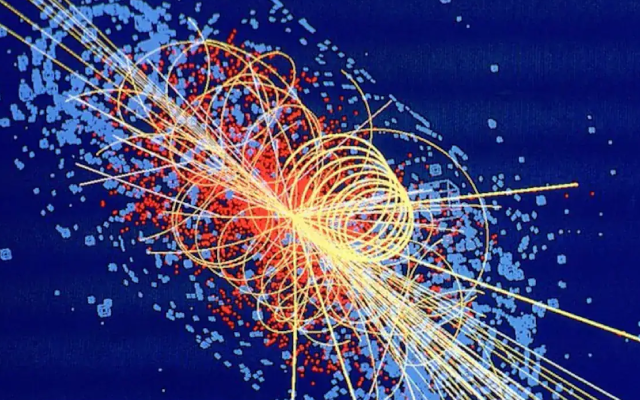The greatest scientific discovery of the 20th century was made by Nobel Prize-winning physicist Peter Higgs, who passed away at the age of 94.
He proposed the existence of the Higgs boson, a fundamental force-carrying particle that is responsible for the mass of other particles, in 1964. His groundbreaking research made it easier to understand why everything in the universe has mass.
His theory was proved 50 years later when researchers at the Large Hadron Collider, the most powerful particle accelerator in the world, discovered the particle in 2012. Mr Higgs was awarded the Noble prize a year later. Particles make up everything in the universe but they did not have any mass when the universe began. They all sped around at the speed of light, according to the European Council for Nuclear Research (CERN). Everything we see — planets, stars and life — emerged after particles gained their mass from a fundamental field associated with the particle known as the Higgs boson.
The particle has a mass of 125 billion electron volts making it 130 times bigger than a proton , according to CERN. Interestingly, the subatomic particles known as bosons are named after Indian Physicist Satyendra Nath Bose.
Why is it called the God Particle?
The term “the God Particle” refers to the Higgs boson. Leon Lederman, a physicist who won the Nobel Prize, called the particle the “Goddamn Particle” in his book about it because he was frustrated with how hard it was to detect.
But the moniker “The God Particle” was changed by his publishers, much to the chagrin of the religious establishment.
The name stuck because it encapsulates the significance of the force-giving particle, without which there would be no particles with mass and no such thing as the world.
Who was Peter Higgs?
Born in 1929 in Newcastle upon Tyne, UK, Mr. Higgs attended King’s College in London before beginning his career as a professor at the University of Edinburgh in the 1950s.
Claiming to be a modest man with limited scientific publications published, he despised his unexpected prominence, labelling it as “a bit of a nuisance” and recoiled at the mention of the “Higgs boson”. Despite his unwavering atheism, he found the term “God particle” offensive.
Read More
You have elected Sharad Pawar’s daughter 3 times, now Elect his Daughter-in-law: Ajit Pawar

















